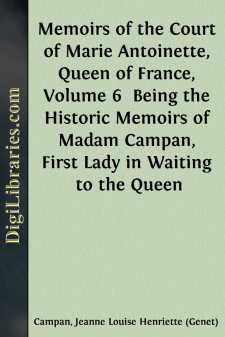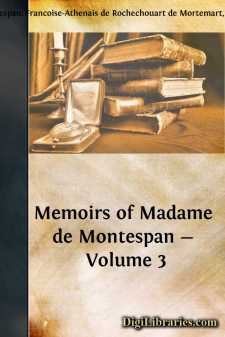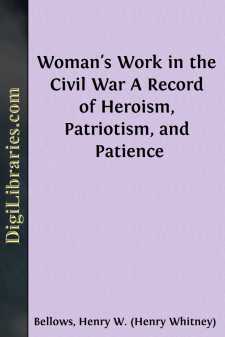History
- Africa 30
- Americas (North Central South West Indies) 50
- Ancient 68
- Asia 58
- Australia & New Zealand 8
- Canada 41
- Caribbean & West Indies 1
- Civilization 20
- Eastern Europe 12
- Europe 310
- Expeditions & Discoveries 60
- General 77
- Historical Geography 1
- Jewish 9
- Latin America 3
- Medieval 8
- Middle East 13
- Military 248
- Revolutionary 8
- Study & Teaching 5
- United States 353
- Western Europe 56
- World 13
History Books
Sort by:
by:
Thomas Carlyle
Chapter I.—WHAT FRIEDRICH HAD READ IN THE MENZEL DOCUMENTS. The ill-informed world, entirely unaware of what Friedrich had been studying and ascertaining, to his bitter sorrow, for four years past, was extremely astonished at the part he took in those French-English troubles; extremely provoked at his breaking out again into a Third Silesian War, greater than all the others, and kindling all Europe...
more...
In the beginning of the spring of 1791, the King, tired of remaining at the Tuileries, wished to return to St. Cloud. His whole household had already gone, and his dinner was prepared there. He got into his carriage at one; the guard mutinied, shut the gates, and declared they would not let him pass. This event certainly proceeded from some suspicion of a plan to escape. Two persons who drew near the...
more...
by:
Robert Black
CHAPTER XXXV. HENRY IV., PROTESTANT KING. (1589-1593.) On the 2d of August, 1589, in the morning, upon his arrival in his quarters at Meudon, Henry of Navarre was saluted by the Protestants King of France. They were about five thousand in an army of forty thousand men. When, at ten o'clock, he entered the camp of the Catholics at St. Cloud, three of their principal leaders, Marshal d'Aumont,...
more...
In recasting Paris and its Story for issue in the "Mediæval Towns Series," opportunity has been taken of revising the whole and of adding a Second Part, wherein we have essayed the office of cicerone. Obviously in so vast a range of study as that afforded by the city of Paris, compression and selection have been imperative: we have therefore limited our guidance to such routes and edifices as...
more...
by:
C. H. Thomas
INTRODUCTION Apart from the progress of the present Anglo-Boer war a world-wide interest has been excited also upon the question of its actual origin. Much disparity of opinion prevails yet as to how it was provoked and upon which side the guilt of it all lay. English statesmen of noblest character and best discriminating gifts are seen professing opposite convictions; one party earnestly asserting the...
more...
INTRODUCTORY In all the ages of which we have any record there have been men who gained a living by that practice of robbery on the high seas which we know by the name of Piracy. Perhaps the pirates best known to the English-speaking world are the buccaneers of the Spanish Main, who flourished exceedingly in the seventeenth century, and of whom many chronicles exist: principally owing to the labours of...
more...
General Introduction THE GREAT EVENTS BY FAMOUS HISTORIANS is the answer to a problem which has long been agitating the learned world. How shall real history, the ablest and profoundest work of the greatest historians, be rescued from its present oblivion on the dusty shelves of scholars, and made welcome to the homes of the people? THE NATIONAL ALUMNI, an association of college men, having given this...
more...
They are forever talking about the coquetry of women; men also have their coquetry, but as they show less grace and finesse than we do, they do not get half as much attention. The Marquis de Lauzun, having one day, noticed a certain kindly feeling for him in the glances of Mademoiselle, endeavoured to seem to her every day more fascinating and agreeable. The foolish Princess completely fell into the...
more...
James K. Polk JAMES KNOX POLK was born in Mecklenburg County, N.C., November 2, 1795. He was a son of Samuel Polk, a farmer, whose father, Ezekiel, and his brother, Colonel Thomas Polk, one of the signers of the Mecklenburg Declaration of Independence, were sons of Robert Polk (or Pollock), who was born in Ireland and emigrated to America. His mother was Jane, daughter of James Knox, a resident of...
more...
PREFACE. The preparation of this work, or rather the collection of material for it, was commenced in the autumn of 1863. While engaged in the compilation of a little book on "The Philanthropic Results of the War" for circulation abroad, in the summer of that year, the writer became so deeply impressed with the extraordinary sacrifices and devotion of loyal women, in the national cause, that he...
more...











